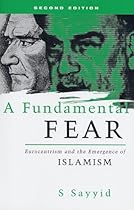

This collection of oral histories is the first book to bring together eyewitness accounts from almost every navy that deployed submarines in World War II. With self-deprecating modesty; humor; pride; sadness; and sometimes bitterness; submariners from Great Britain; Germany; the United States; Italy; France; the former USSR and Yugoslavia; Norway; Greece; Poland; the Netherlands; and Japan describe submarine life. From landing agents in enemy territory; laying mines; and being depth-charged; to distilling illicit alcohol; rescuing a cat; and treating appendicitis; the stories add an important personal dimension to the official operational record of WWII submarines. Arranged chronologically; the stories are given background and context by the editor for a full understanding of the contributions made by those who served beneath the waves.
#3458800 in Books 2004-02-07Original language:EnglishPDF # 1 8.54 x .54 x 5.42l; .67 #File Name: 1842771973212 pages
Review
13 of 16 people found the following review helpful. An excellent analysis of Radical IslamBy A CustomerThere is a great deal of stupidity and mendacity attached to the study of Muslim polities; therefore it is refreshing to encounter a book that actually goes beyond the usaul cliches and tries to analyse what is undoubtebly a complex phenomenon. The author offers a radical re-interpretation of political Islam; which while not necessarily compelling in everyway; it is at least always intersting. There is much to disagree with the author's analysis; but it is difficult to ignore what he says. The scorched earth style critique the book offers leaves few prisoners. Perhaps; the book is overtly harsh on American academics and Middle East specialists; but it is difficult to fault its relentless logic. I would recommend this book to anyone interested in contemporay politics; while some of the coceptual language takes some getting used to; I found it worth the effort; and I think most open-minded readers will.8 of 9 people found the following review helpful. Timely book that explains the current U.S- Muslim conflictBy A CustomerIn the aftermath of US crusie missile attacks on Sudan and Afganistan; it is becomes ever more necessary to understand so-called "Islamic fundamentalism". Madeline Albright's declaration of war against "Islamic extremism" highlights how important it for us in the United States have a better understanding of events in the Middle East. If we are going to go to war against over a billion Muslims; we Americans need to know what we are going to war against.The strength of Sayyid's book is that it manages to explain the Islamic resurgence without seeing it as a local difficulty that is only happens in or or two special cases. What he seems to be suggesting is that political Islam is nebelous but at the same time powerful force in the world. It is unlikely to be beaten down by 70 odd crusie missles.The book is organized in 5 main chapters; these chapters place the current Islamic revival in its historical context. The book concludes by arguing that rise of political Islam is linked to the decline of the West and as such it is a phenomena that will continue to preplex and confound our policy makers until we come to terms that our days as undiputed "masters of the universe" are over.8 of 9 people found the following review helpful. American Imperialsts vs Islamist Rebels?By A CustomerAmericans in post 9-11 or those wedded to postivist models of social analysis will not get this book. They will complain that it does not provide data; there is no surveys; there is not ethnography; no statistical models. This book will not tell you how to spot an Islamist; it will not tell you how many people there are in HAMAS. So why rate this volume so highly? The merit of this book is that it tells what the contempoary conflict between Islamists and American imperialists is about. The author argues that Age inaugarate by Columbus apporiation of the Western hemisphere (which coincided with ethnic cleansing of Muslims and Jews from Spain)is in crisis. The unraveling of the myth of western/white superiority is making increasingly difficult for the western global state to manage the world through perusasion that it has all the good ideas; thus to perserve it superiority it has to flex it military muscle to an increasing extent. The author suggests that Islamism has taken hold of the Muslim imagination; because it does not kow-tow to the western model; as such the attempt to destroy Islamism can only be understood as attempt to perserve the currant global order. No doubt the author would see the war aganinst terrorism as war between imperialists and rebels.